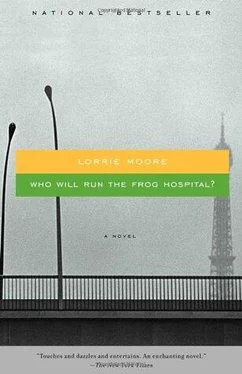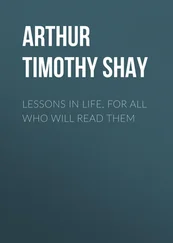For the next hour electric guitars wailed and keened in protest of all that we were forced to be in this life. “Man, oh man,” murmured the people around us. Four boys climbed up on the second-tier railing and swayed back and forth to the music, their limbs occasionally jolting and spazzing. It was a dance style I’d seen before. It was acid — something that scared and fascinated me. “Do you want to take a trip, a sugar trip, a trip to sugar mountain?” I’d been asked that before at bars. “No thanks,” I’d said. For all my recklessness, I feared chromosome damage. I feared accidentally starting a brand-new species. I believed all the talk about damage to your very genetic material —though it turned out later not to be true.
I could have been up there with those boys.
There was a slight snap in the air from the lake, and Sils and I huddled under the blanket for warmth. Feeling the heat of her so close, I thought about how seldom we slept over these days, me in that sleeping bag at the foot of her bed, or she at the foot of mine, the routine intimacy of that, our talking out into the dark of our rooms, the cemetery quiet out the window and us with our jokes and sighs and then our sleep, side by side in duet, our breaths staggered like a round. Only once had we ever had a fight — she accused me of having deliberately developed a laugh like someone else, someone named Leslie Fish. She accused me of wanting to hang out with Leslie and be like Leslie, which summoned up such outrage on my part that I struck Sils in the arm and then rushed home in tears, waiting the week out until at last we were friends again.
It had been true about the laugh, and I never laughed like that again.
Now everyone on the lawn stood and so did we, in our large blanket cape, and the whole audience lit matches for an encore, the ground around us like some fantastic birthday cake in the dark, but the band refused to come back. So we packed up and made our way toward the exit with the crowd. I looked in vain for LaRoue, my cruelty toward her now in me like a splinter, where it would sit for years in my helpless memory, the skin growing around; what else can memory do? It can do nothing: It pretends to eat the shrapnel of your acts, yet it cannot swallow or chew.
I looked toward the lot where we had parked, but the car seemed not to be there.
“Let’s call a cab,” said Sils.
“What do you mean?”
“With the money,” she said. “Let’s take a cab back home.”
“There’s probably someone here we know.” I was reluctant to spend the money like this.
“Like who?”
“I don’t know. Maybe Markie Russo and those guys,” I said. Markie Russo had once had a crush on Sils and I was sure he would have given her a ride home in a second. But everyone was heading purposefully toward their cars and I recognized none of them. We were still walking with the blanket around us, like medieval orphans.
“There’s a phone,” said Sils, and so we called a cab. Hiller’s Cab Company. “I’ll be there as soon as possible,” said the voice at the other end. We waited right there by the phone booth, smoking cigarettes, tapping our feet, watching the dispersing crowd.
The cabbie who came for us was a strange dwarf of a man: balding, shiny head; fingers fat as wursts; his body squat and globular; his legs so short and misshapen there was some apparatus constructed on the pedals of the cab so that he could drive.
We got in, gave him my address, and he pulled out of the parking lot. The traffic was heavy from the concert and jammed at the next corner near the main light. In his rearview mirror he could see us sorting our money. We had brought forty dollars with us and were counting what was left.
“Where you girls work?”
I didn’t say anything. I looked out the window, past the traffic, toward the lake.
“Storyland,” said Sils. There was something brazen and high from the pot in her voice. “I’m Cinderella there,” she added. I could tell she wanted, just for the fun of it, to shock him somehow.
“Is that right?” He looked in the rearview mirror again, to check her out, I supposed. But instead he looked mostly at me. As if I were the guard or the interpreter. “I used to work there myself as Humpty Dumpty — before they got that ceramic, mechanical one.” Now he turned hopefully to look at us both in the backseat.
“Really?” I said.
“Should we call you Humpty?” asked Sils.
“Sure.” He smiled.
“We can’t call you Humpty,” she chided. “We’ll have to call you, um — Humphrey!” and we burst our laughing, in a stoned, mean way, but he laughed with us, and we all just sat there in the night traffic laughing in the uncontrolled, hysterical way of people who rarely got what they wanted in life though they also didn’t try very hard.
We didn’t stop. The laughter built — especially his — to tears and gasps. Three fools from Horsehearts — how funny! We
couldn’t stop. Even after our cabbie grew quiet, Sils and I sank against the cab doors and snorted, while he sighed and cleared his throat, silently taking the correct turns and driving us the ten miles back to my house. I thought of the time in fifth grade when our science teacher had made some of us be planets and positioned us in town according to where the planets would actually be, relatively speaking. The downtown library was the sun, and Jerry Murphy, who was Mercury, was positioned right there on the library steps. He was dressed in red and carried a little sign with the name of his planet on it. Sils had been Venus and was made to stand by the Civil War monument, two blocks away, draped in gauzy material meant to resemble clouds. But I was Pluto, and had to stand several miles outside of town, in the middle of the countryside. The teacher drove me there herself. And I stood there all afternoon, in black leotards, next to a dairy farm and a cornfield, with my little sign that said Pluto. The local paper came by and took my picture and Sils’s older brothers drove past in their car and honked and hooted. Despite the humiliation, I felt close to Sils then. Because of her brothers. Because we were in outer space together, and her brothers had come by to see me.
Which for some reason was how I felt now in the cab, with the cabbie, and our all laughing together. I felt, perhaps because of the pot, like we were all planets in the same solar system — which was all I had ever wanted or asked from people, anyone, ever.
“Thanks,” we said when we got out. And we tipped him twenty dollars, “just to blow his mind,” Sils whispered.
“Do you think we did? Do you think we blew his mind?”
He hadn’t looked to examine the bills. He’d just stuffed them into his pocket.
“He’ll look. He’ll see,” said Sils.
When we went inside, only Claude was still up. He was sprawled on the couch, under a blanket, watching TV like a sick person. In the last six months he’d been growing in the pale, disproportionate way of adolescents and leggy plants — his limbs and feet sending themselves out past his cuffs like antennae. But he was still a little boy and self-conscious. I always suspected him of having a crush on Sils.
“Hi,” he grunted, turning his head just slightly to see us, then he blushed and turned back to the television.
“Hi,” I said.
“Hi, Claude,” Sils said a little flirtatiously.
“Hi,” he said again.
“Did LaRoue already come in?” I asked, suddenly worried.
“Yeah,” he said absently. That was all. We tiptoed back to my room, trying not to squeak the floorboards and bring one of my parents down to lecture us for staying out late and being generally inconsiderate what was it with us girls.
When later in life she would appear — in a dream with a group of people, or in a thought about friends I never saw anymore, those I’d consented to lose and live without — she often appeared, in sleep or pensiveness, as she did the next morning when she awoke, dashed to the bathroom, and threw up. She came back to the room gray and perspiring, and I gave her my bathrobe to wear. It was a white seersucker robe, and her hair fell to the inside of the neck of it, making a kind of pageboy, a frame, like the hood of a cape around her face. It was the way she often looked in winter, when she wore a coat: her hair tucked inside, looking as if it had suddenly been bobbed. I knew all the hairstyles and looks of her; there were a dozen or so, and I knew them all. Each time I saw one again, I would say to myself, “Oh, yes, that one.”
Читать дальше












